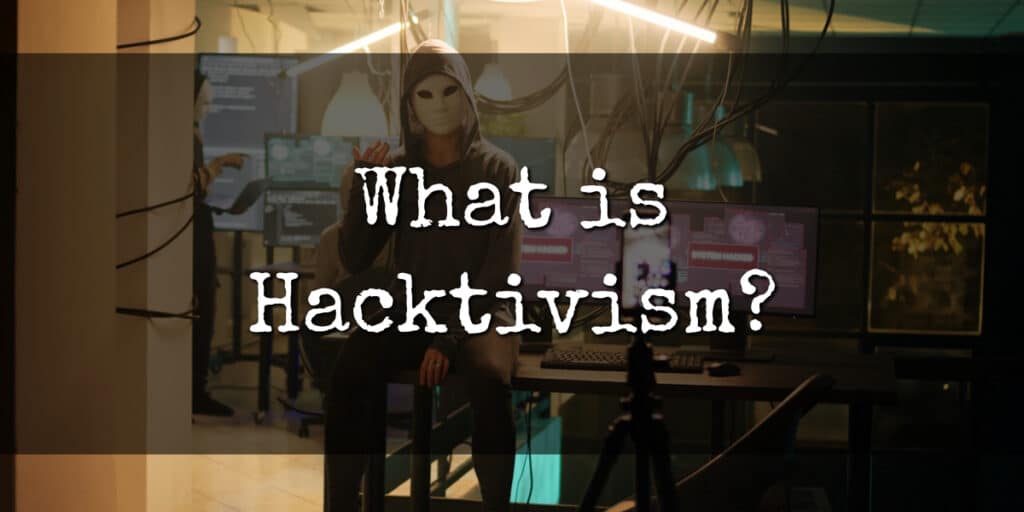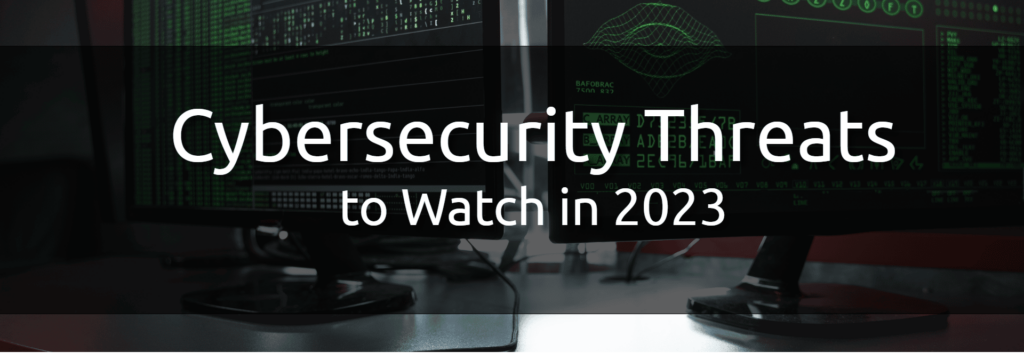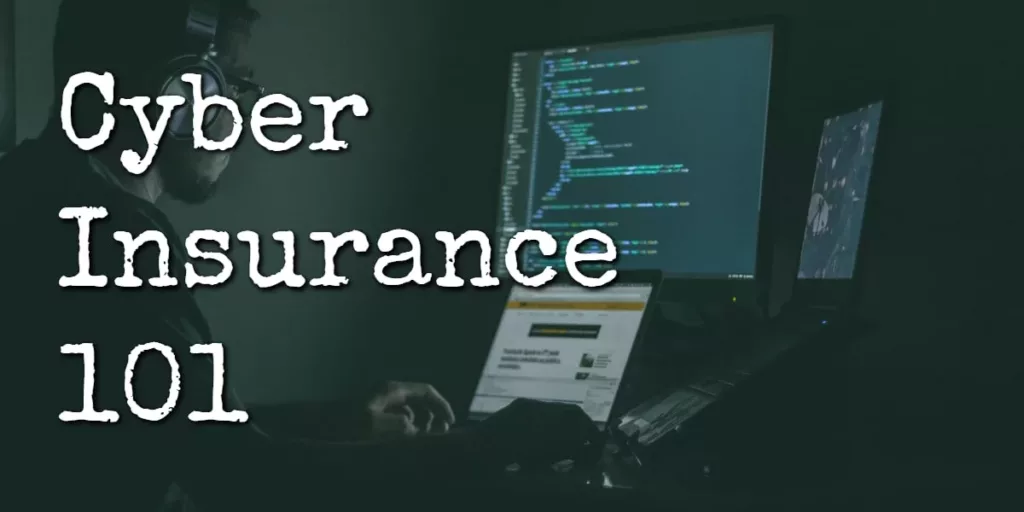In recent years, hacktivism has significantly increased – a form of cyber protest involving computer systems to make a social or political statement. However, the increase in hacktivist activity has also brought growing concerns around cyberterrorism.
In this article, we will explore the rise of hacktivism and seek to understand the difference between it and cyberterrorism. We will also investigate the motivations behind hacktivist groups, the impact of their actions on society, and the growing threat of cyberterrorism.
Finally, we will examine how we can combat these issues and consider what the future holds for these controversial subjects.
On This Page:
Defining Hacktivism and Cyberterrorism
To begin, let’s define the terms hacktivism and cyberterrorism.
Hacktivism describes hacking activities carried out on behalf of a social or political cause. This might include website defacements, denial-of-service attacks, and data breaches aimed at raising awareness for a particular issue or to promote a particular agenda.
Cyberterrorism, on the other hand, is the use of computer networks to cause harm or to further a political agenda. It is often carried out by extremist groups and can include acts such as cyber-attacks on critical infrastructure like power grids, water treatment plants, and transportation systems.
The Evolution of Hacktivism

Hacktivism has been around since the early days of the internet. In the pre-social media era, hacktivists were often motivated by a sense of activism and operated on the fringes of society. However, with the increasing use of social media, hacktivist groups have been able to mobilize more efficiently, and their actions have gained greater online visibility.
One of the most well-known hacktivist groups is Anonymous. Anonymous has been involved in a number of high-profile actions, including attacks on the Church of Scientology, the Westboro Baptist Church, and various government agencies. Anonymous has also been involved in the Arab Spring protests, supporting the uprisings in Tunisia, Egypt, and Libya.
Other hacktivist groups include LulzSec, which was responsible for several high-profile attacks in 2011, and AntiSec, which was a collaboration between LulzSec and Anonymous.
Today, many hacktivist groups operate openly, and their activities have come under increasing scrutiny from law enforcement agencies and governments worldwide. Some countries, such as China and Russia, have fought hard against hacktivism, while others, such as the United States, have been more lenient.
Key Differences Between Hacktivism and Cyberterrorism
While both hacktivism and cyberterrorism use computer networks to further a cause, there are significant differences between the two.
Firstly, hacktivism is often motivated by a sense of political or social activism, while cyberterrorism is motivated by a desire to cause harm or to further a particular political or ideological agenda.
Secondly, while hacktivists may carry out cyber attacks, their goal is often to raise awareness or cause inconvenience rather than to cause lasting harm. For example, a hacktivist group might conduct a distributed denial-of-service (DDoS) attack on a government website to protest a particular policy.
Finally, while hacktivist activities are often illegal, cyberterrorism usually involves explicitly criminal acts, such as the destruction of critical infrastructure. Cyberterrorism can have serious consequences, including loss of life, and is considered a major threat by many governments and organizations.
The Motivations Behind Hacktivism

One of the most complex aspects of hacktivism is understanding its motivations. While it is clear that some individuals and groups use hacking techniques to further their political or social agendas, the reasons behind their actions are often more complex and nuanced than simple ideology.
Some of the most common motivations behind hacktivist groups include political activism, social justice, retaliation, and revenge.
Political Activism
Many hacktivist groups are motivated by political activism, fighting for everything from free speech to government transparency. These groups often carry out attacks against government institutions, the military, and other organizations they perceive as oppressive or nefarious.
For example, in 2010, Anonymous launched a series of attacks against the websites of companies that had withdrawn their services from the whistleblower website, WikiLeaks. These attacks were carried out in retaliation for what Anonymous saw as an attack on free speech and government transparency.
The group also targeted the websites of government institutions in countries like Tunisia and Egypt during the Arab Spring uprisings, in an effort to support the pro-democracy movements in those countries.
Another common motivation for hacktivists is social justice. Groups like Anonymous often target corporations and organizations that they feel are exploiting individuals or groups, such as those engaged in animal testing or human rights abuses. Hacktivists often see themselves as working to protect vulnerable people and rebalance power structures that are harmful to society.
For instance, in 2013, Anonymous launched a campaign against the Steubenville, Ohio, high school football team, after two players were convicted of raping a 16-year-old girl. The group hacked into the team’s website and social media accounts, and leaked personal information about team members and coaches. The group saw this as a way to draw attention to the issue of rape culture and the way it is perpetuated in high school sports.
Retaliation and Revenge
Finally, some hacktivist groups are motivated by retaliation and revenge. These groups may target individuals or organizations that they feel have done them wrong in some way, such as whistleblowers whose careers have been destroyed or companies that have refused to comply with environmental laws.
One example of this type of hacktivism is the case of Jeremy Hammond, a hacktivist who was sentenced to 10 years in prison for his role in the 2011 hack of private intelligence firm Stratfor. Hammond claimed that he targeted Stratfor because he believed the company was involved in illegal activities and was spying on activists. He saw the hack as a way to expose the truth and seek revenge against those he saw as his enemies.
Notable Hacktivist Groups and Incidents

Over the years, there have been many notable hacktivist groups and incidents. Here are just a few of the most noteworthy groups and events:
Anonymous
Perhaps the most well-known hacktivist group is Anonymous. Anonymous has carried out a wide range of operations, from targeting the Church of Scientology to hacking into the websites of banks and government agencies. Their activities have often garnered media attention and have been the subject of much debate over the years.
Anonymous is a loosely associated international network of activist and hacktivist entities. A website associated with the group describes it as “an Internet gathering” with “a very loose and decentralized command structure that operates on ideas rather than directives.”
The group became known for a series of well-publicized protests and direct actions, many of which were carried out online. These included Operation Chanology, a campaign against the Church of Scientology, and Operation Payback, a campaign against organizations that had taken action against WikiLeaks.
LulzSec
LulzSec was a short-lived hacktivist group that carried out a series of high-profile attacks in 2011. Their targets included several high-profile corporations and government agencies, including Sony Pictures, the CIA, and the UK’s Serious Organized Crime Agency.
LulzSec was known for its irreverent approach to hacking and its tendency to carry out attacks for the “lulz” (laughs). The group’s activities were often accompanied by taunting messages and jokes aimed at their targets and the authorities.
The group was eventually brought down by a combination of arrests and internal discord, but its activities had a significant impact on the hacktivist movement and the public perception of hacking.
WikiLeaks
While not strictly a hacktivist group, WikiLeaks has significantly impacted the hacktivist movement. The organization is known for publishing classified and sensitive information, and its activities have inspired many hacktivist groups worldwide.
WikiLeaks was founded in 2006 by Julian Assange, an Australian internet activist. The organization’s stated goal is to “bring important news and information to the public… so that the public can make up its own mind about the events that shape our world”.
Over the years, WikiLeaks has been involved in several high-profile leaks, including the release of classified US military and diplomatic documents in 2010. The organization’s activities have been controversial, with some accusing it of endangering national security and others hailing it as a champion of transparency and free speech.
The Arab Spring and Hacktivism
The Arab Spring led to an upsurge of hacktivist activity across the Middle East. Hacktivists played a key role in organizing and mobilizing protesters, and their activities were integral to the success of many of the uprisings that took place during this period.
One of the most notable examples of hacktivist activity during the Arab Spring was the role played by the group Telecomix. The group provided technical support to protesters in Egypt, Tunisia, and other countries, helping them to circumvent government censorship and communicate with each other and the outside world.
Other hacktivist groups also became involved in the Arab Spring, carrying out attacks against government websites and providing technical support to protesters. These groups’ activities helped raise awareness of the uprisings and the issues at stake.
The Impact of Hacktivism on Society

Hacktivism’s societal impact is intricate and diverse. Often self-proclaimed champions of justice, hacktivists’ actions significantly affect individuals and organizations.
They are seen as heroes by some, revealing injustices and effecting change, and as criminals by others, causing harm through illegal acts. Regardless of one’s stance, hacktivism undoubtedly shapes public discourse and influences political and societal structures.
The Debate Over Free Speech and Censorship
One of the key debates around hacktivism is whether it constitutes free speech or censorship. While many hacktivist groups see their actions as a way to challenge authority and promote free speech, others argue that they are merely using cyber weapons to silence dissenting voices and impose their will on others.
It is important to note that while free speech is a fundamental right, it is not an absolute right. There are limits to what can be said or done in the name of free speech. Hacktivist groups often walk a fine line between promoting free speech and engaging in illegal activities that harm others.
The Role of Hacktivism in Modern Protests
Hacktivism has played an increasingly important role in modern protests. For example, hacktivist groups like Anonymous played a crucial role in organizing and mobilizing protesters during the Occupy Wall Street protests. Hacktivist groups have also been involved in organizing protests against police brutality and other issues worldwide.
One of the benefits of hacktivism in modern protests is that it allows for a level of anonymity and protection for protesters. By using encrypted communication and other security measures, hacktivist groups can help protect the protesters’ identities and prevent them from being targeted by law enforcement or other groups.
The Consequences of Hacktivist Actions
The consequences of hacktivist actions can be significant and far-reaching. While hacktivists may have noble intentions, their activities can have unintended consequences. For example, many of the attacks carried out by hacktivist groups have led to the exposure of sensitive information, potentially putting individuals or organizations at risk.
Additionally, hacktivist actions can have a negative impact on innocent individuals or organizations. For example, DDoS attacks on a website may prevent legitimate users from accessing the site, causing frustration and inconvenience. Furthermore, hacktivist actions can lead to increased surveillance and monitoring by law enforcement or other groups, potentially infringing on the privacy rights of individuals.
Cyberterrorism: A Growing Threat

While hacktivism has been a growing trend in recent years, it is essential to remember that there is a significant difference between hacktivism and cyberterrorism.
Cyberterrorism is a growing threat around the world, with extremists and other groups using computer networks to further their agendas and cause chaos. Some of the most common goals of cyberterrorists include stealing sensitive information, disrupting critical infrastructure, and promoting violent ideologies.
The Most Infamous Cyberterrorism Attacks
Many significant cyberterrorism attacks have occurred over the years, from the 2014 attack on Sony Pictures by North Korea to the 2017 WannaCry ransomware attack that affected hundreds of thousands of computers worldwide.
These attacks have caused significant economic damage and highlighted cyberterrorism’s potential danger.
Combating Hacktivism and Cyberterrorism

There are various ways in which hacktivism and cyberterrorism can be combated. For example:
Government and Law Enforcement Responses
Governments and law enforcement agencies around the world have been working to combat hacktivism and cyberterrorism. This includes developing new laws to punish cybercriminals, increasing the capacity of law enforcement agencies to investigate cyber attacks, and working to promote international cooperation to tackle these issues.
The Role of Cybersecurity
Cybersecurity is becoming increasingly important in the fight against hacktivism and cyberterrorism. Organizations and individuals need to take steps to protect their digital information from attack, including using strong passwords, keeping software up to date, and using encryption where appropriate.
Ethical Hacking and Its Importance
Finally, ethical hacking can play an important role in combating hacktivism and cyberterrorism. Ethical hackers use their knowledge of computer systems to defend against attacks and help organizations improve their cybersecurity.
The Future of Hacktivism and Cyberterrorism
The future of hacktivism and cyberterrorism is likely to be complex and unpredictable. On the one hand, hacktivism is growing in popularity and is likely to continue to play a crucial role in modern protests and activism.
On the other hand, cyberterrorism poses a significant threat to national security and is expected to become increasingly sophisticated in the years ahead. As such, we must continue to work towards a better understanding of these issues and take steps to combat them where possible.
Overall, the rise of hacktivism and the threat of cyberterrorism highlight the importance of cybersecurity in the modern era. From ethical hacking to government action, many strategies can be employed to combat these issues and reduce their impact on society.



